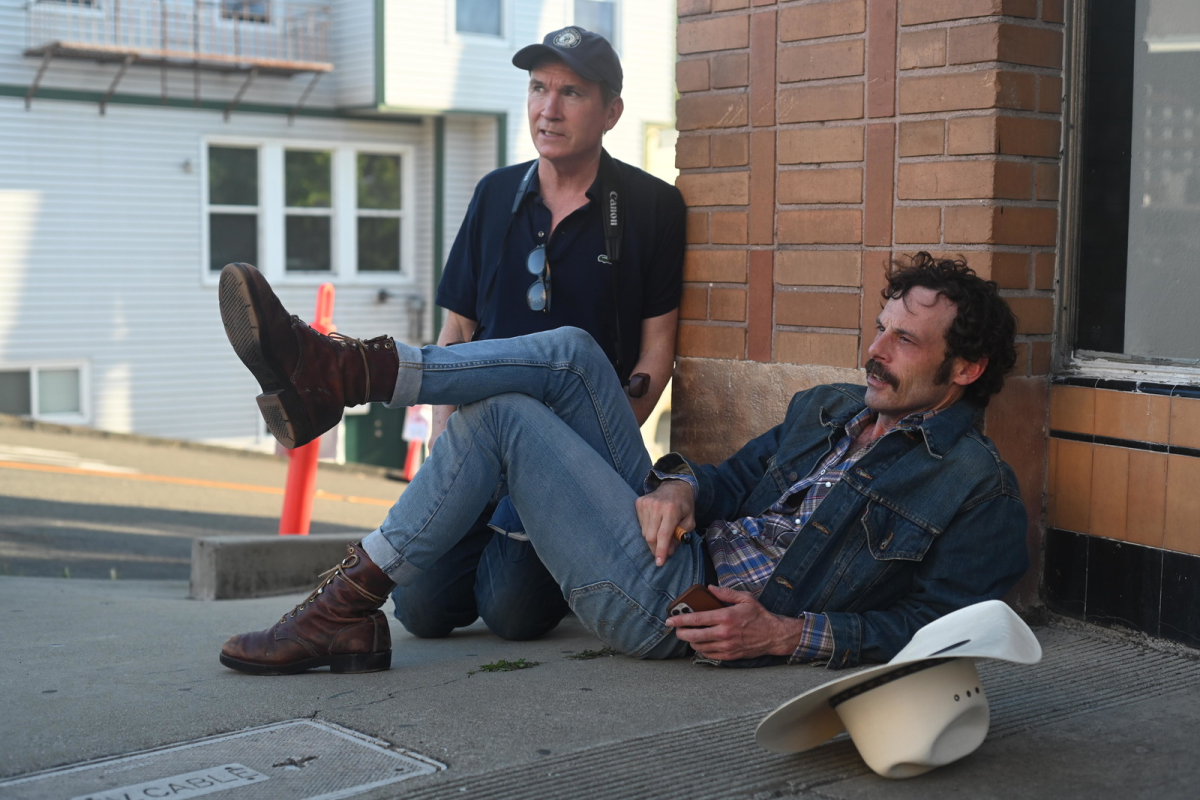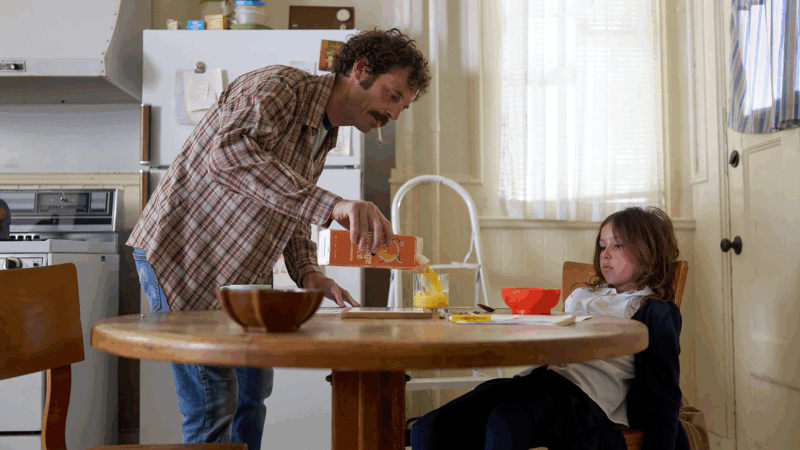‘Fairyland’ recalls a girl’s life with her poet father in pre-AIDS San Francisco
1970s San Francisco was a place where a young girl and her widowed, gay father could live a fun, unconventional life. That was writer Alysia Abbott’s childhood before the AIDS epidemic. She wrote about it in Fairyland: A Memoir of My Father, and the story resonated with filmmaker Sofia Coppola, who helped turn it into a film set for wide release on October 10.
Actor Scoot McNairy portrays Steve Abbott, who raises his daughter Alysia, at first played by Nessa Dougherty, after his wife dies in a car crash. They move to San Francisco, a city where he was able to live freely as a poet and novelist, a gay man and single dad.
“Why do you only have boyfriends and never girlfriends?” Alysia asks him in one scene in the movie.
“Because your mother was my favorite girl,” he tells her. “And I could never love another girl as much as I loved her.”
Alysia grows up in a bohemian home, with her dad and their roommates. They sometimes dress up in costumes to go to parties and poetry readings. In her memoir Fairyland, Abbott describes her childhood as a magical place of wonder, full of acceptance and love.
“I was a 10 year old, and felt like everything was possible. And I loved rainbows and unicorns and Pegasus. I just thought the ’80s were going to be this wonderful time, you know, infused with the soundtrack of Xanadu,” Abbott tells NPR. “It wasn’t just a matter of being in my dad’s world, where a lot of gay men were feeling free for the first time, but San Francisco was also just a place for people to go if they didn’t quite fit in where they came from and wanted to experiment and try new things. And so there was a lot of found family in San Francisco.”
After reading Abbott’s memoir, Sofia Coppola decided to produce it as a film. Coppola told NPR the story reminded her in some ways of her own childhood in San Francisco, where she grew up the daughter of legendary filmmaker Francis Ford Coppola.
“We lived in an old Victorian house and my dad had all these European filmmakers and eccentric artists coming through, and creative people in San Francisco at that time, just this kind of bohemian, eccentric — it was [a] really fun, interesting crowd that I remember coming through,” Coppola says. “So I was just touched by her story, and I felt like it could be a movie. I thought about one of my favorite movies, Paper Moon, and it just reminded me of this kind of buddy movie with a father and a daughter.”
To make the cinematic version of Fairyland, Coppola turned to her friend and collaborator Andrew Durham. The photographer makes his feature film directorial debut with this adaptation of Abbott’s book.

“I could really relate to so much of what she was writing about,” Durham tells NPR. He recalls that he and his brother also spent part of their childhoods with their gay father in San Francisco.
“My dad had come out of the closet and he’d moved to the city in the mid-’70s during the gay lib movement,” says Durham. “So as a kid, I remember going to parties with my dad and his friends in San Francisco and there was just this incredible mix of people: the San Francisco blue-blooded society people mingling with the leather daddies and then the Haight-Ashbury hippies and poets. It was really magical.”
By the end of the 1980s, that exuberant freedom ended with the AIDS crisis. And once again, Durham says, he and Abbott had a similar experience as young adults with fathers who were HIV positive.
“My dad died in 1992, the same year that Steve Abbott died,” he says. Even though he and Alysia didn’t know each other, they were both taking care of their sick and dying fathers at the same time.
Durham says 1992 was a devastating year for AIDS deaths; the disease was the single biggest cause of death for men between 25 and 44 years old in the United States. The disease, he notes, wiped out a generation. “We need to just keep reminding people that this happened and all these people we lost, especially in the creative community. There were so many incredibly talented people that we lost.”
Abbott says she wants to remind people who read her memoir and watch the film that AIDS isn’t over; there are still people dying of the disease, and people living with HIV as long-term survivors.
“I do think that understanding and sharing this history is more important than ever,” she says, “because I think especially young queer people feel that they’re going through such a difficult time and trials and to know where we’ve been and how as a community, the queer community stayed together and sort of persevered. I think it’s really powerful. There’s a long line of surviving and thriving through community that I believe is part of the story.”
In Abbott’s real-life Fairyland tale, the father dies, but not before encouraging his college age daughter to become a writer. And now, their story is on the big screen.
Pentagon puts Scouts ‘on notice’ over DEI and girl-centered policies
After threatening to sever ties with the organization formerly known as the Boy Scouts, Defense Secretary Hegseth announced a 6-month reprieve
President Trump bans Anthropic from use in government systems
Trump called the AI lab a "RADICAL LEFT, WOKE COMPANY" in a social media post. The Pentagon also ordered all military contractors to stop doing business with Anthropic.
HUD proposes time limits and work requirements for rental aid
The rule would allow housing agencies and landlords to impose such requirements "to encourage self-sufficiency." Critics say most who can work already do, but their wages are low.
Paramount and Warner Bros’ deal is about merging studios, and a whole lot more
The nearly $111 billion marriage would unite Paramount and Warner film studios, streamers and television properties — including CNN — under the control of the wealthy Ellison family.
A new film follows Paul McCartney’s 2nd act after The Beatles’ breakup
While previous documentaries captured the frenzy of Beatlemania, Man on the Run focuses on McCartney in the years between the band's breakup and John Lennon's death.
An aspiring dancer. A wealthy benefactor. And ‘Dreams’ turned to nightmare
A new psychological drama from Mexican filmmaker Michel Franco centers on the torrid affair between a wealthy San Francisco philanthropist and an undocumented immigrant who aspires to be a dancer.







